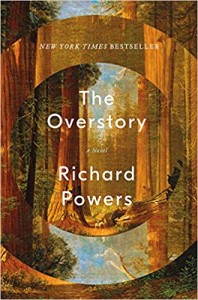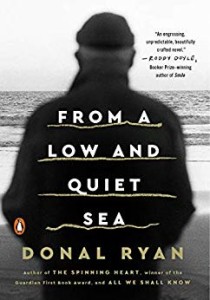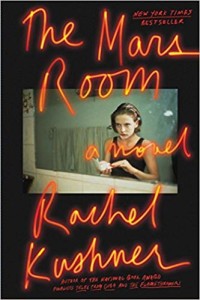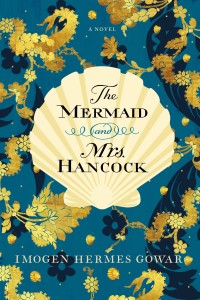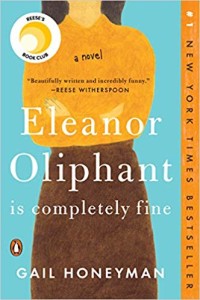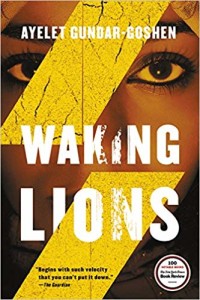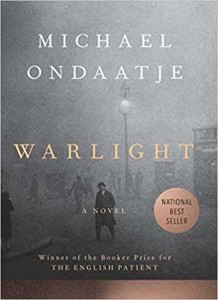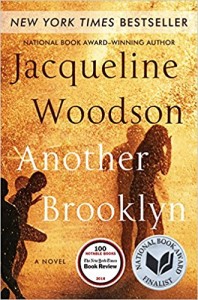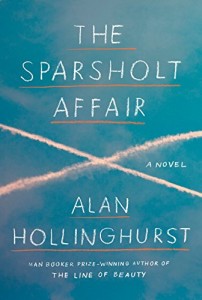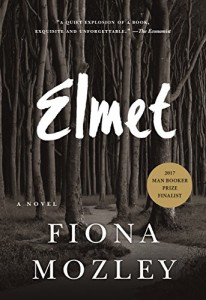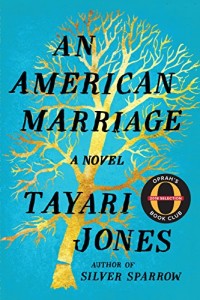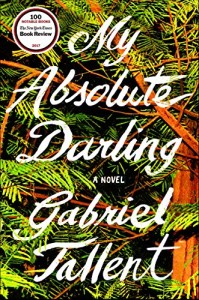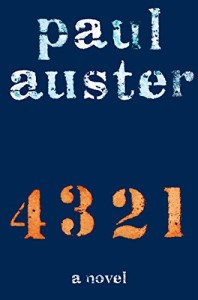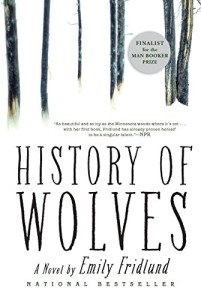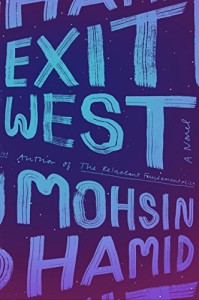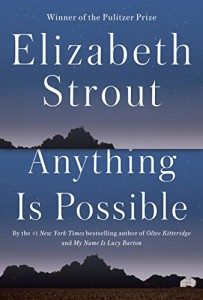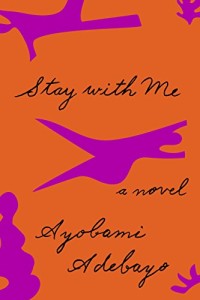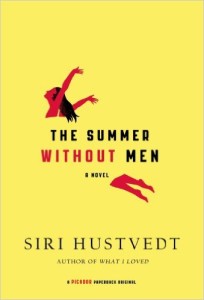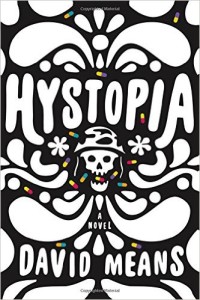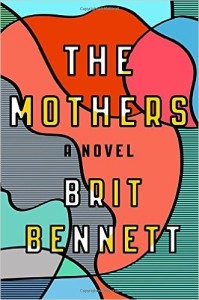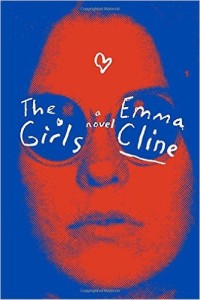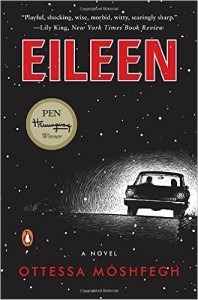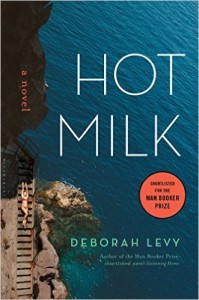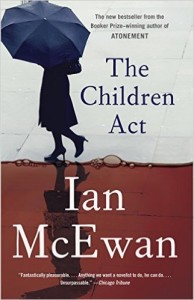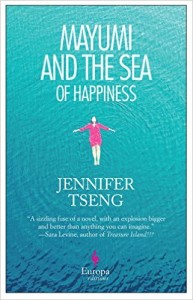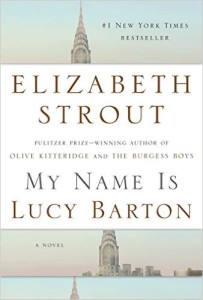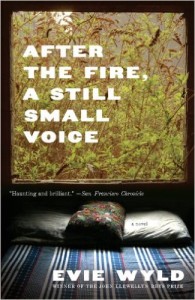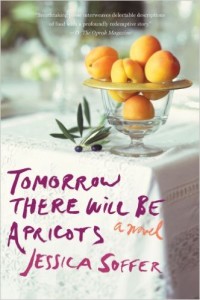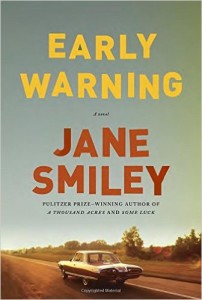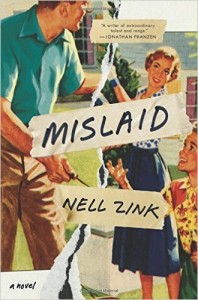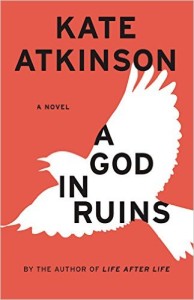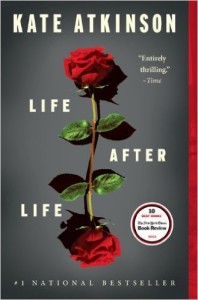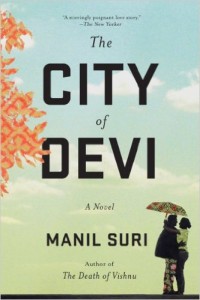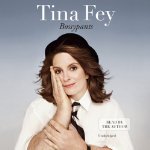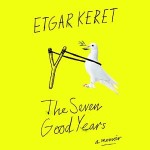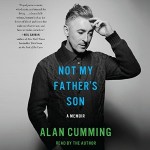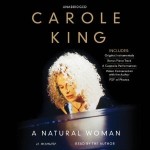Welcome to His Brother’s Keeper, a fictional mystery series set in 2000, in New York. I’ve decided to periodically lend my blog to a friend, Eva Hirschel. Eva doesn’t have a social media presence but she does have a mystery that she wanted to publish serially on-line, so I’m giving her a hand. (If you’re just tuning in now, I suggest that you start at the beginning). Here is Part I, Chapter 10. Enjoy!
Chapter Ten
 The trip to Altoona was uneventful, or, as uneventful as long trips can be with small children. We left Brooklyn at 6:30 in the evening, partly because I wanted to get some work done in Altoona during the next day, and partly because we figured the kids would sleep in the car. They did, eventually, at about eleven o’clock and after more songs, snacks, bathroom stops and stories than I cared to remember. I had brought along a collection of Jewish folktales that my parents had given the kids for Chanukah. I was surprised to read in the back of the book that many of the stories had Chasidic roots and some were even attributed to the Baal Shem Tov himself. The kids particularly liked one story about an illiterate shepherd boy who can play the flute but can’t read a word of the prayer book. He goes to synagogue and is devastated to realize that he can’t pray. So instead, he plays a song on his flute to God. The other congregants are scandalized by his impropriety, but in the end the boy triumphs when the rabbi declares that the music he made with the flute was a prayer that went straight to God because it came from the boy’s heart. It seemed to sum up what I had read about Chasidism, with its embrace of the poor and uneducated masses and allowing everyone access to God through expressions of heartfelt joy.
The trip to Altoona was uneventful, or, as uneventful as long trips can be with small children. We left Brooklyn at 6:30 in the evening, partly because I wanted to get some work done in Altoona during the next day, and partly because we figured the kids would sleep in the car. They did, eventually, at about eleven o’clock and after more songs, snacks, bathroom stops and stories than I cared to remember. I had brought along a collection of Jewish folktales that my parents had given the kids for Chanukah. I was surprised to read in the back of the book that many of the stories had Chasidic roots and some were even attributed to the Baal Shem Tov himself. The kids particularly liked one story about an illiterate shepherd boy who can play the flute but can’t read a word of the prayer book. He goes to synagogue and is devastated to realize that he can’t pray. So instead, he plays a song on his flute to God. The other congregants are scandalized by his impropriety, but in the end the boy triumphs when the rabbi declares that the music he made with the flute was a prayer that went straight to God because it came from the boy’s heart. It seemed to sum up what I had read about Chasidism, with its embrace of the poor and uneducated masses and allowing everyone access to God through expressions of heartfelt joy.
It was a long trip, almost seven hours with all the stops. When we finally got to the hotel, checked in, carried in the sleeping kids and the bags and pillows, Simon and I had collapsed in our bed and fallen right asleep. I still hadn’t found the right opportunity to tell him the details about yesterday’s meeting with Sarah Gelberman.
In the morning, the first stop was the town clerk’s office. I left Simon back at the hotel with the kids, on their way to the heated indoor pool. Altoona was a small city in Western Pennsylvania, not far from one of the Penn State campuses, which had reached its zenith during the height of the steam railroad’s dominance in industry in the forties. While there was clearly an effort towards rehabilitation going on, it was also clear that the downtown had seen better days. The city clerk’s office was located in a small, nondescript municipal building downtown that, according to the sign in the lobby, housed Altoona’s Department of Taxation, the City Manager, the City Solicitor, The Purchasing Department, the City Inspector, the Zoning Department, the Water Authority and the Water Billing Office.
The clerk’s office was on the second floor, up a wide staircase. A black door with a brass sign next to a water fountain announced, “City Clerk.” I opened the door and entered a large, drafty room. Inside was a row of chairs facing a low railing. Behind the railing sat a middle-aged woman at a battered metal desk, entering information into a computer. The rest of the space behind her was taken up with rows and rows of filing cabinets and steel shelves of boxes labeled by number. In one corner was another woman, also working intently at a computer. On the left was a bank of offices, to which the frosted glass doors were closed. Sunlight filtered in through dingy arched windows at the back of the aisles. The woman at the front of the room looked up at me, her teased blond hair and red lipstick the brightest things in this drab room. The nameplate in front of her computer informed me that she was Mrs. A. Romero.
“May I help you?” she asked politely, glancing back at her screen.
“Yes, hi,” I began. “I’m doing some research and I need information on a former resident of Altoona.”
“Alive or deceased?” she asked mechanically.
“Alive,” I said.
She cocked her head slightly, looking in my general direction. “Well, honey, if the person is alive there is very little I can do for you, ‘cept what’s public domain.”
“Yes, I know. That’s fine. That would help. What I’m looking for specifically is a teaching certificate.”
She frowned, looking quickly over her shoulder to the row of offices behind her. “Now, this isn’t about a lawsuit of some sort, is it?”
I smiled, trying to look as innocuous as possible. “No, no, not at all. I’m a genealogist, trying to track down some information for a client, whose grandfather used to live here. It’s a surprise for his birthday, so I can’t ask him directly.”
Pushing her chair back from her desk, she looked up at me with interest. “Well, isn’t that the sweetest thing. My husband is working on his family tree. It’s a lot of work, but soooo interesting. Now what’s the name of this former Altoona resident of yours?”
“Jack Gelberman,” I said.
A smile broke out on her face. “Gelberman? And you say he was a teacher? A man in his mid-seventies or so, it would be?”
I nodded, holding my breath. Could she have known him? That kind of coincidence only happened in books.
“Why, honey, that must be Mr. Gelberman who taught at the high school. I’m a local myself. My Dad came out here to work for the railroad. Sometimes it still just seems like a real small town. Sure I knew him, a sweetheart of a man, quiet but so kind and thoughtful. Always had a word of encouragement, always believed in his students. I had Mr. Gelberman myself for basic science, so many years ago. And then my daughter had him for physics. That was his specialty. I was terrible at science, but Tina, my daughter, she was a very good student. He was one of her favorite teachers. How nice to think of him again after all this time.” She sighed and continued. “Tina became a teacher herself, you know, and I think it was in part because of the example of Mr. Gelberman. He was never too busy to help a student, never made anyone feel stupid, even people like me who didn’t understand a thing. He was so smart, he probably could have been a great physicist, but no, this was what he wanted, to teach high school for his whole career. Don’t know how he had the patience. Here, come on in.” She raised a latch in the railing and a portion swung out to allow me to enter the inner sanctum. She patted the empty chair next to her desk. “Sit down. Let me pull his file.” She got up and walked to the back of the room while I made myself comfortable. “Such a small world, you know. Let’s see, where would it be?”
Her description of Jack Gelberman sounded a great deal like Mrs. Freiburg’s description of Nossen Shlomo. A good man, a mensch, kind and compassionate, but quiet, not leadership material, not ambitious.
She continued looking, talking to me while she searched. Her voice floated back to me from between the cabinets and through the shelves. “I remember his son Nathan, he graduated high school with my little sister. Is it Nathan asked you to do this research?”
“No,” I called back to her. “It’s his granddaughter.”
“How absolutely sweet. Which one? Ah, I think I found it here.” She reappeared from behind a file cabinet, carrying a manila folder.
“Sarah.”
“Sarah. Yes, I remember Sarah. They moved a while ago, around the same time Mr. Gelberman retired I think, but I remember the grandkids. You know, they sort of stuck out around here, but boy were they cute. I remember running in to him at the playground. I had taken my grandkids, and he was there with his. Such a sweet man, so good with kids.”
She began to tell me about her own grandchildren, but I wasn’t listening. I nodded and oohhed and aahhed appropriately when she showed me the framed pictures of them on her desk, but I was too busy processing the information that Sarah Gelberman had been born and lived here in Altoona. Why, then, would she not have told me her grandfather had lived here? She must have known. And what did Mrs. Romero mean by telling me that they stuck out around here? Was she referring to Sarah’s bright red hair? Did all of Sarah’s siblings have the same color hair? Red hair was not common, surely, but it wasn’t that remarkable.
“So would you like to see the teaching certificate?” she asked, pulling me out of my reverie.
“Yes, please.”
She opened the folder, pulled out a yellowed certificate, and handed it to me. There it was, actual documentary proof of Jacob Gelberman’s existence. Holding a document was very different somehow than reading something on a computer screen. According to the certificate, he received a B.A. in physics from the Penn State campus in State College, Pennsylvania, in 1952. He’d continued at Penn State, getting an M.A. in physics and finishing the requirements for a teaching license in 1954. Those dates would jibe with Sarah’s information that he had been a Holocaust survivor, because it would have meant that he had arrived here at the latest around 1948. He’d worked at Altoona High School from 1954 until his retirement in 1996. The certificate also listed his previous places of employment before he began to teach. Between 1951-1954 he worked at a Seltz’s Shoe Emporium as a clerk, and before that, beginning in 1947, he worked at B. Solomon and Son’s Grocery. So he had probably arrived in 1947. It looked like a typical immigrant’s story, arriving with nothing and working at non-professional jobs, getting an education, and landing in the middle class. As a teacher he would not have been wealthy, but his family would have been comfortable, and he would have a nice pension for his retirement years.
It was all interesting information, and helped add to the picture I in my mind of Jack Gelberman. The most interesting bit of information though, was what was listed on the line next to “place of birth.” The handwriting was cramped and hard to read, but it was clear enough that I could make out the words, Chalisz, Poland. I knew from my reading that Chalisz was a variant spelling of Halizch.
I had to hold my breath for a moment. Even though I hadn’t wanted to share my doubts with Simon, in the back of my mind I’d been plenty concerned that Sarah Gelberman was leading me on a wild goose chase. But here it was, evidence on an official document. It still didn’t prove beyond a doubt that his grandfather was the Halizcher rebbe, but all evidence was pointing in that direction. How many other Jack Gelbermans of just this age could there have been from Halizch, Poland? Then again, there were still plenty of questions. I needed definitive proof, but I also needed a plan. In the meantime, I asked to see his voter registration information.
“I can’t tell you who he voted for,” she said laughing, “but I can tell you the first time he was on the voter registration rolls. That I’ve got right here.” She turned to the computer and got to work. “Been a registered voter since 1956. If he was a Republican, he would have helped get Eisenhower elected. But if you don’t mind me asking, how does that help you? Maybe it’s something I could tell my husband.”
Great, I thought, win her over by giving her a lesson in genealogy. Whatever works. “If I know when he first voted, it might give me some idea of when he became naturalized. It takes five years to become a citizen and be eligible to vote. We know from the employment records that the latest he could have arrived in the U.S. was 1947. So he should have been eligible to vote as early as 1953. Why the gap? It’s probably not significant. Either he wasn’t interested in voting until it was a presidential election, or he had just not gotten around to it until then. What it gives me is an approximate date of the latest possible time he might have arrived, which in this case I didn’t really need that since I had his employment history, but it can still be useful. And it also gives me a good estimate of the earliest time he might have arrived. We don’t know anything before 1947. If he had been a registered voter earlier than ’53, we’d have to assume he had been in the country before ’47. In this case, however, either he wasn’t interested in voting, or he really did arrive right around the time he appeared here in Altoona and started working for the grocer.”
“Wow, that’s clever!” she exclaimed. “I have to tell Anthony! Thanks for the tip.”
While I had been discussing voter registration with Mrs. Romero, the other half of my brain had been hatching a plan. This next part wasn’t going to be easy. Mrs. Romero seemed so nice, I hated to be devious. But devious I would be.
“It’s my pleasure. Thank you so much. You’ve been so helpful to me.” With as much casualness as I could muster, I said, “He seems like such a nice man, from everything I’ve heard about him. And did you know Mrs. Gelberman too?”
She smiled again. “Not well. She passed away some years ago. But she was lovely too, like him. She used to volunteer a lot, at the library, and with the Red Cross when they did blood drives, things like that. Always trying to help. Not as quiet as her husband, but still a private person. I think she also went through the war. You know. A terrible thing those people must have lived through. We don’t have a whole lot of people of the Jewish faith here, but those who are here are good people. The town made a real effort after the war to welcome the refugees and helped them get settled.”
“Were there a lot of them that came here?”
“No, not that I know of. I think just a handful of some young, single people like Mr. Gelberman must have been back then. People without families, who could make fresh starts in a place like this. Gave them opportunities to work and learn professions. We should all take such good care of each other, you know. It was a nice thing.”
“Did the Gelbermans ever talk about their experiences, that you know of?”
“Oh, no, never, not in public anyway.” She sighed. “It wasn’t done. You know, today nothing’s private anymore, with those talk-shows about sex and scandals and all, but once it wasn’t considered polite to talk about people’s tragedies and sorrows. As far as I know, and I didn’t know them well, they never spoke about it publicly. Still, Altoona was a small town then, and we all knew. There weren’t many foreigners, and with those accents they stood out. We just knew they’d gone through something terrible, but I can’t tell you what exactly. I didn’t even know he was Polish until I saw that teaching certificate just now. We just thought of him as European, maybe Austrian or something. Tina once told me that during a blood drive at school she saw his arm—he had those numbers there. She was real upset about it. But he always took care to wear long-sleeve shirts, even in the summer, didn’t want people to see, I guess. Didn’t want to call attention to himself. What people do to each other in this world, it’s terrible.”
Trying to steer the conversation back to Mrs. Gelberman, I asked, “So did they meet here in Altoona?”
She pinched up her face, thinking for a moment. “Well, that I can’t tell you, honey. I would have been in grade school then, I didn’t know them or anything about them yet. It’s possible, though. Maybe they met at the university.”
Time to go in for the kill. “But even if they met elsewhere, they might have gotten married here.”
“Possibly. Maybe. I don’t really know. It doesn’t look like he lived much of anywhere else since he got here, but who knows.”
“So, if they had gotten married here, their marriage certificate would be on record here with you.”
Wagging her finger at me, she smiled. “You’re a cute one. You know full well I can’t show that to you. As long as he’s alive, and he’s not the one asking for it, it’s against the rules. Invasion of privacy.” But she laughed nicely, to show that she wasn’t offended by my attempt. “Sorry, honey.”
“I don’t want to invade his privacy. It’s just that if I could see his marriage certificate, I might be able to find out his parents’ names. And that would be a big help in getting on with the research for Sarah. That is, for his birthday. It would lead me to the research I need to do in Europe about his family.” I decided to play it for all it was worth. With her husband working on his own family tree so she might understand. “The information on his marriage certificate is the key to the whole thing, you see.”
She cocked her head and looked at me sideways. Quietly, with a glance at the other woman in the back of the room, she said, “You know I can’t.”
“I know.”
“I shouldn’t.”
“I know.”
“It’s against all the rules.”
“I know.”
“No, I really can’t. I could get into big trouble.”
“I don’t want to get you in trouble.”
“Okay, I’m glad you understand.”
“Absolutely. Positively.”
“I’m sorry.”
“I’m sorry for asking. Sarah will be so disappointed. But it’s not fair of me to ask.”
“I wish I could help.”
“I know. I appreciate it anyway.”
“No, I just can’t.”
“I know.”
Silence. Checkmate. She sat still, checking her nail polish finger by finger, then swiveled her chair and looked at the woman at the other desk, who appeared completely engrossed in her work. She got up from her chair, took an index card and a pencil, and went to the back corner of the cavernous room, on the side far from where the other woman sat. I couldn’t see her, but I could hear the click of her heels as she searched for the right cabinet. The sound of drawers opening and closing echoed through the room. After a few moments of silence, punctuated only by the other woman’s tapping on her keyboard, I heard the heels coming closer. Mrs. Romero came around the corner of a row, and headed back to me.
“Well, then,” she said. “No, no record of that. Sorry I wasn’t able to help you.” As she spoke, she passed me the index card.
I glanced at the paper and saw that she had written the following:
Mother – Basya Marcusevich
Father – Nathan S. Gelberman
That was it! A direct connection to Yosef Yehudah, the Halizcher rebbe. Mrs. Freiburg had told me that one of Yosef Yehudah’s daughters was named Basya, and that she had married Nossen Shlomo Gelberman. Nathan was the English version of Nossen, which Jack must have thought was more appropriate for American documents. The “S.” had to be for Shlomo. And it was looking very likely indeed that Jack Gelberman was really the grandson of the last Halizcher rebbe, despite the stories that neither he nor his brother Leib had survived the Holocaust. This was amazing. With this information, it would be relatively easy to access further documentation. I looked up at Mrs. Romero, wanting to express my gratitude. But she had turned her attention to a pile of papers next to her computer. I coughed softly, hoping she would look at me. But she kept her face averted, absorbed in her papers.
“Thank you so much,” I said.
“Enjoy your stay in Altoona,” Mrs. Romero said stiffly, dismissing me.
***
The minute I got back to the hotel Simon relinquished responsibility for the kids. All signs indicated that he was extremely stressed and not happy to be here, stuck in a hotel room in Altoona with the two kids. They had already gone swimming, and visited the mini-golf across from the hotel.
Before I could even fill him in on my productive morning, he held up a hand and said, “Abby, not right now. I’m not in the mood for any of that. There’s something big going on at work, which don’t forget is the thing that basically pays all our bills, and I need to deal with it. Just let me be.”
Realizing that it wouldn’t be wise to respond with what I wanted to say, I turned the t.v. on for the kids, who were delighted at this special treat. A little bit of Cartoon Network wouldn’t scar them for life.
“Okay, Simon, give me ten minutes and the kids and I will be out of here.”
But he didn’t answer. He had plugged in his laptop and portable printer, and was already connected to the hotel’s wireless. It was clear he was mentally back at his office, even if he was physically in Altoona. “Okay, I’m here,” I heard him say into the phone.
I sat down on the bed and made some notes in my file about this morning’s events. What a lucky break I’d had. It would have been glorious if I could have gone on-line myself, but there was no way I was going to attempt that now.
As soon as I was done, I gathered the kids and we went back downtown to tour the Altoona Railroader’s Memorial Museum. Instead of being grateful or thanking me, Simon gave me a dirty look as we left the room, and barked at the kids to be quiet while he was on the phone.
The kids were enthralled by the museum. Caleb loved anything to do with trains, and Hannah had a great time playing store and house in the re-created storefronts and period rooms of Altoona history. In the heat of the moment, I bought them both train whistles in the museum gift shop, which I knew I was going to sorely regret later. On the way back to the hotel, I stretched out our time by taking the kid’s to MacDonald’s, another special treat. If you can’t break rules once in a while, why have rules to begin with? Filled up on chicken nuggets and fries, and after the whistles were confiscated, the kids fell asleep during the ten minutes it took to get back to the hotel. I called the room on my cell phone, but it was busy, so Simon must still be dealing with work. I called his cell, and left him voicemail that we were outside the hotel in the car, and that I was going to wait for a while to give the kids a chance to sleep. I knew that if I tried to put Caleb into the stroller to get him upstairs, or even if I carried him, he would wake up and never go back to sleep. Hannah I couldn’t carry anymore anyway. And if they didn’t sleep this afternoon, we were in for a rough evening at services. So I sat in the car while they slept, reviewing my notes and figuring out how to proceed. As I went through everything, I realized there were still more questions than answers.
[To be continued….]
His Brother’s Keeper is entirely fictional. None of the characters or situations described in this series are based on real people or events. Copyright (c) 2015 by Eva Hirschel.
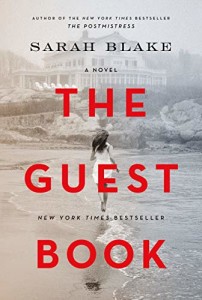 This is a story about a family, but also about a country, told over several generations. The Miltons are blueboods, the bedrock of America. They are the definition of privilege and noblesse oblige. Civility and honor are prized, along with knowing one’s place – the assumption being that a everyone should know their place and act accordingly. The family patriarch buys an island in Maine in the years preceding World War II, which is the backdrop to much drama and a deeply buried mystery which later gets unearthed by a granddaughter trying to make sense of the past. Blake does a magnificent job depicting the different generations, their relationships to each other, and their experiences of both the island and the family legacy. The island itself comes beautifully to life through the seasons and over the years, with incredibly gorgeous detail of the sea and local plant life and the items in the kitchen and in the bedrooms, the clothes that the characters wear and what each generation is drinking, so that the place itself a main character in this compelling tale. She expertly weaves together the threads of this story that are both highly personal to the Milton family, and also contain reverberations of American history and changing national mores. The personal is truly political here, even as individual family members try over the generations to cover up their complicity. But truth seeps out of the cracks of even carefully constructed lies and omissions, and is eventually uncovered.
This is a story about a family, but also about a country, told over several generations. The Miltons are blueboods, the bedrock of America. They are the definition of privilege and noblesse oblige. Civility and honor are prized, along with knowing one’s place – the assumption being that a everyone should know their place and act accordingly. The family patriarch buys an island in Maine in the years preceding World War II, which is the backdrop to much drama and a deeply buried mystery which later gets unearthed by a granddaughter trying to make sense of the past. Blake does a magnificent job depicting the different generations, their relationships to each other, and their experiences of both the island and the family legacy. The island itself comes beautifully to life through the seasons and over the years, with incredibly gorgeous detail of the sea and local plant life and the items in the kitchen and in the bedrooms, the clothes that the characters wear and what each generation is drinking, so that the place itself a main character in this compelling tale. She expertly weaves together the threads of this story that are both highly personal to the Milton family, and also contain reverberations of American history and changing national mores. The personal is truly political here, even as individual family members try over the generations to cover up their complicity. But truth seeps out of the cracks of even carefully constructed lies and omissions, and is eventually uncovered.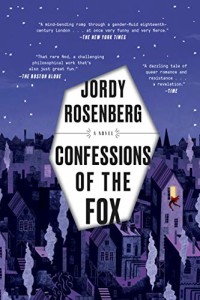 A conceptual novel if ever there was one, for most of the time I was reading this I couldn’t decide if it was brilliant or insane, or both. Based on the life of historical characters from 18th century London, Jack Sheppard, a reknown thief and jailbreak, and Edgeworth Bess, a famous prostitute, this novel is a combination of different styles, narratives, and narrators. It is about as queer a novel as is possible, dealing with queer identity and also breaking down boundaries about writing and novels and fiction, and so much more. Ostensibly, this volume is a research project being undertaken by a professor, Dr. Voth, whose career is shaky at best and whose heart has recently been broken. The reader comes to understand that the professor is trans, and that there is much going on in the Dr. Voth’s life beyond this project. The book is divided into two parts. One is a longlost autobiographical manuscript containing the story of Jack Sheppaard and Edgeworth Bess. The manuscript, which may or not be a hoax, reveals heretofore unknown information including that Sheppard had been born a girl, and other ways in which both were masters of gender-transformation and barrier-breakers. The other part of the book are Dr. Voth’s footnotes on the manuscript, which both comment on the manuscript, and within those margins also begin to shape a narrative about the professor’s own life and reality. If this sounds like a dizzying journey, it is. But it is well worth it. This boundary-pushing book is a delicious delight, at times quite funny and at other times heartbreaking. And, yes, it is absolutely brilliant.
A conceptual novel if ever there was one, for most of the time I was reading this I couldn’t decide if it was brilliant or insane, or both. Based on the life of historical characters from 18th century London, Jack Sheppard, a reknown thief and jailbreak, and Edgeworth Bess, a famous prostitute, this novel is a combination of different styles, narratives, and narrators. It is about as queer a novel as is possible, dealing with queer identity and also breaking down boundaries about writing and novels and fiction, and so much more. Ostensibly, this volume is a research project being undertaken by a professor, Dr. Voth, whose career is shaky at best and whose heart has recently been broken. The reader comes to understand that the professor is trans, and that there is much going on in the Dr. Voth’s life beyond this project. The book is divided into two parts. One is a longlost autobiographical manuscript containing the story of Jack Sheppaard and Edgeworth Bess. The manuscript, which may or not be a hoax, reveals heretofore unknown information including that Sheppard had been born a girl, and other ways in which both were masters of gender-transformation and barrier-breakers. The other part of the book are Dr. Voth’s footnotes on the manuscript, which both comment on the manuscript, and within those margins also begin to shape a narrative about the professor’s own life and reality. If this sounds like a dizzying journey, it is. But it is well worth it. This boundary-pushing book is a delicious delight, at times quite funny and at other times heartbreaking. And, yes, it is absolutely brilliant.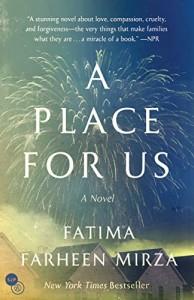 My first thought upon recalling the experience of reading this book is simply to take a deep breath. There is a reverence to this book, a deep respect for the tradition out of which this story comes. In many ways, this book belongs to a genre of stories of immigrants to the United States, with generational differences causing friction between parents and children and struggles over identity and belonging. Within that genre there is a sub-genre to which it belongs as well, the stories of immigrant families from India, with all the particulars of those stories. And while this particular book does belong to that genre and sub-genre, it is so much more. As the family gathers for a wedding, their love for each other comes to the surface along with secrets, anger, and hurts. As the narrative moves from the present to the past, and then into the future, betrayal after betrayal is revealed, and the scars become visible. Yet with all the drama, there is an understated stillness and quietude that threads through the complexity of this family story. Their Muslim faith is in the forefront of their behavior; their beliefs and theology is described in loving ways that allow for struggle and engagement rather than serving as a mere descriptive element. They want to be people of faith, and they are sustained by their faith, even as they worry about not living up to its highest aspirations. I found their struggle to be deeply moving, and the level of complexity with which they struggled to be quite compelling.
My first thought upon recalling the experience of reading this book is simply to take a deep breath. There is a reverence to this book, a deep respect for the tradition out of which this story comes. In many ways, this book belongs to a genre of stories of immigrants to the United States, with generational differences causing friction between parents and children and struggles over identity and belonging. Within that genre there is a sub-genre to which it belongs as well, the stories of immigrant families from India, with all the particulars of those stories. And while this particular book does belong to that genre and sub-genre, it is so much more. As the family gathers for a wedding, their love for each other comes to the surface along with secrets, anger, and hurts. As the narrative moves from the present to the past, and then into the future, betrayal after betrayal is revealed, and the scars become visible. Yet with all the drama, there is an understated stillness and quietude that threads through the complexity of this family story. Their Muslim faith is in the forefront of their behavior; their beliefs and theology is described in loving ways that allow for struggle and engagement rather than serving as a mere descriptive element. They want to be people of faith, and they are sustained by their faith, even as they worry about not living up to its highest aspirations. I found their struggle to be deeply moving, and the level of complexity with which they struggled to be quite compelling.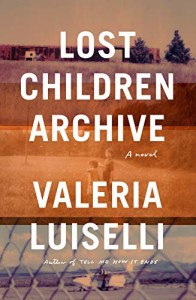 Read this book. Now. Run, don’t walk. This Man Booker Longlisted novel is both urgently of the moment, and achingly timeless. A patched together family of unnamed members, a mother, a father, a daughter and a son, get in a car to drive across America. It is in some ways an epic American road novel of discovery, myth-making, and in this case also myth-breaking. The parents are both involved professionally in recording sounds for the purposes of creating stories and documentaries, though their particular interests are in different areas. The mother, spurred by her distress about lost children in the midst of the current refugee and immigration crisis, is determined to tell a story about what is happening with children currently trying to enter this country. The father wants to tell the story of the Apache, to examine the reality versus the myth of what happened to the people who were the original inhabitants of this land and for whom we are the ones who came, uninvited and unwelcome. This is a story about the history and future of a particular family, and it is a story about a the history and future of this country. It is heartbreaking, and gorgeously written, with a kind of poetic repetitive beat that drives the narrative even at its most quotidian. But wait – there’s more. The story is told from several points of view, and includes lists, and so many names of books and writers, and a story within the story, and descriptions of photographs, and sounds, so many sounds and echoes of sounds that it feels like a multi-sensory experience as well as one of those never-to-be-forgotten interdisciplinary college classes that dizzyingly ties everything together in ways formerly unimaginable. A wise friend recommended that I listen to the book rather than read it, something I almost never do with fiction, but I listened to her advice and now I understand why. So that’s my recommendation as well – this is a book to listen to. Try it and you’ll see why.
Read this book. Now. Run, don’t walk. This Man Booker Longlisted novel is both urgently of the moment, and achingly timeless. A patched together family of unnamed members, a mother, a father, a daughter and a son, get in a car to drive across America. It is in some ways an epic American road novel of discovery, myth-making, and in this case also myth-breaking. The parents are both involved professionally in recording sounds for the purposes of creating stories and documentaries, though their particular interests are in different areas. The mother, spurred by her distress about lost children in the midst of the current refugee and immigration crisis, is determined to tell a story about what is happening with children currently trying to enter this country. The father wants to tell the story of the Apache, to examine the reality versus the myth of what happened to the people who were the original inhabitants of this land and for whom we are the ones who came, uninvited and unwelcome. This is a story about the history and future of a particular family, and it is a story about a the history and future of this country. It is heartbreaking, and gorgeously written, with a kind of poetic repetitive beat that drives the narrative even at its most quotidian. But wait – there’s more. The story is told from several points of view, and includes lists, and so many names of books and writers, and a story within the story, and descriptions of photographs, and sounds, so many sounds and echoes of sounds that it feels like a multi-sensory experience as well as one of those never-to-be-forgotten interdisciplinary college classes that dizzyingly ties everything together in ways formerly unimaginable. A wise friend recommended that I listen to the book rather than read it, something I almost never do with fiction, but I listened to her advice and now I understand why. So that’s my recommendation as well – this is a book to listen to. Try it and you’ll see why.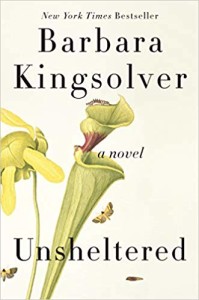 I love Barbara Kingsolver’s writing but this should have been a better book. I don’t regret reading it. But it seemed as if, because Kingsolver is such a successful author, that it didn’t get the editing it should have gotten. The concept is great. There are two parallel stories occurring in the same place, a century apart, in Vineland, New Jersey. Kingsolver has great material to work with here – Vineland has an interesting history. But the story felt too forced and too much in service about making a point about the state of the world in which we’ve found ourselves today, and the dire consequences that we will facing shortly if we don’t change our ways. In both stories. a literal house and a way of life are falling apart. Can either be saved is the question asked in both stories, and the answer is not a good one in either. But the stories are filled with interesting characters and possibilities for transformation, moments of aching tenderness and beautiful descriptions of nature. All of that made it possible to get through a book that desperately needed to be shorter and sharper.
I love Barbara Kingsolver’s writing but this should have been a better book. I don’t regret reading it. But it seemed as if, because Kingsolver is such a successful author, that it didn’t get the editing it should have gotten. The concept is great. There are two parallel stories occurring in the same place, a century apart, in Vineland, New Jersey. Kingsolver has great material to work with here – Vineland has an interesting history. But the story felt too forced and too much in service about making a point about the state of the world in which we’ve found ourselves today, and the dire consequences that we will facing shortly if we don’t change our ways. In both stories. a literal house and a way of life are falling apart. Can either be saved is the question asked in both stories, and the answer is not a good one in either. But the stories are filled with interesting characters and possibilities for transformation, moments of aching tenderness and beautiful descriptions of nature. All of that made it possible to get through a book that desperately needed to be shorter and sharper.
